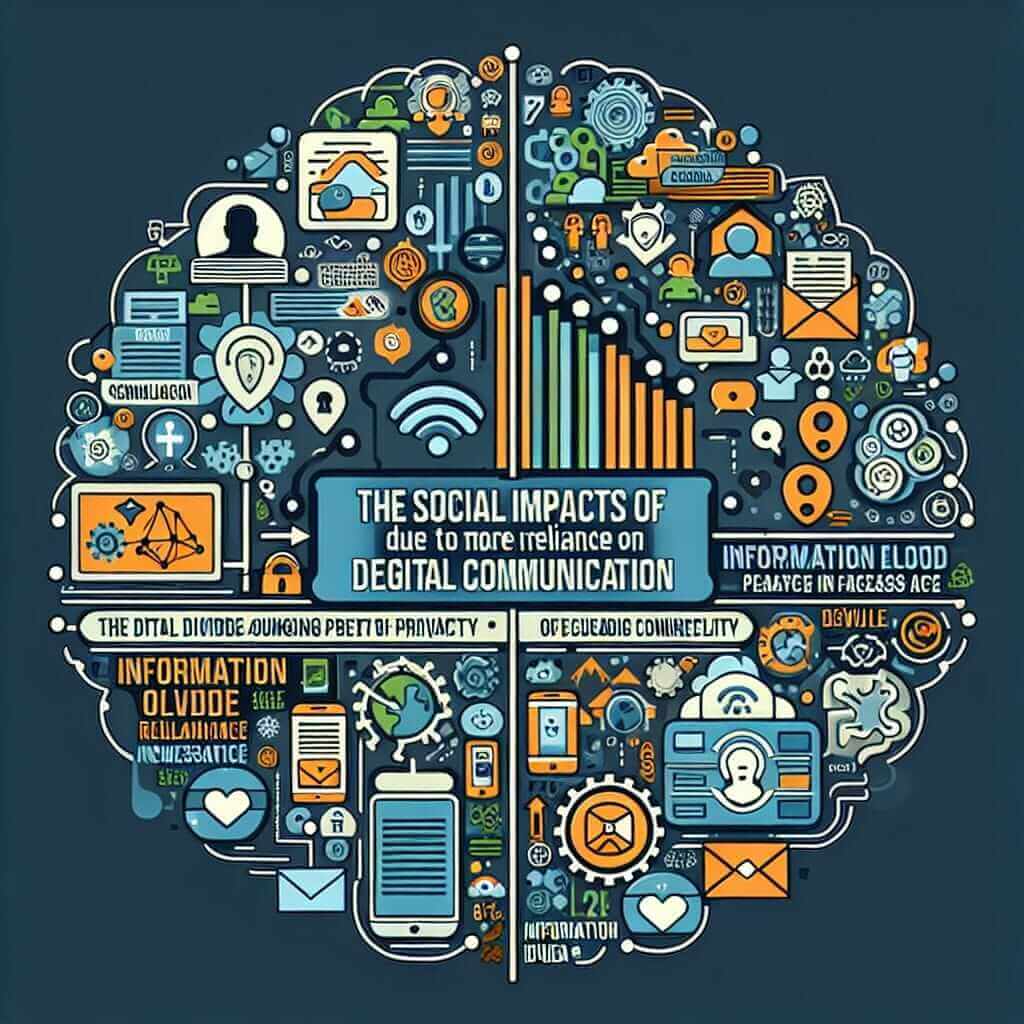In recent years, with the rapid advancement of technology, our reliance on digital communication has grown significantly. The IELTS Reading section often incorporates contemporary topics like these to test candidates’ understanding and analytical skills. This topic has been prevalent due to its relevance and impact on society. Therefore, it’s essential to be prepared for similar themes in your IELTS exam.
This article will provide you with a well-structured IELTS Reading practice test centered around the theme “What are the social implications of increasing reliance on digital communication?” We’ll also include analysis, vocabulary, grammar notes, and tips to improve your Reading skills.
Practice Reading Passage: Social Implications of Digital Communication
Passage Text (Medium Text)
Digital communication has revolutionized the way individuals interact, enabling instant messaging, video conferencing, and social networking across the globe. This technological transformation has brought numerous benefits, including the ability to stay in touch with friends and family, facilitate remote work, and access information at unprecedented speeds.
However, this shift towards digital communication also presents several social implications. One significant concern is the potential decline in face-to-face interactions. With the convenience of digital platforms, people may opt for virtual conversations over in-person meetings, which can lead to weakened interpersonal skills and a sense of isolation.
Moreover, the reliance on digital communication can contribute to the erosion of privacy. Personal information shared online is susceptible to data breaches and misuse. This raises questions about the extent to which individuals can control their digital footprint and the potential consequences for their personal and professional lives.
Another critical issue is the digital divide, which refers to the gap between those who have access to digital technologies and those who do not. This divide can exacerbate social inequalities, leaving marginalized communities at a disadvantage in terms of education, employment, and social connectivity.
Furthermore, the omnipresence of digital communication can lead to the phenomenon of information overload, where individuals are bombarded with excessive data and stimuli. This can negatively impact cognitive functions, reduce attention spans, and increase stress levels.
In conclusion, while digital communication offers numerous advantages, it is essential to consider its broader social implications. The decline in face-to-face interactions, privacy concerns, digital divide, and information overload are critical issues that need to be addressed to ensure a balanced and healthy integration of digital communication in our lives.

Questions
Multiple Choice
-
What is one potential negative effect of increased digital communication on personal relationships?
A. Improved communication skills
B. Enhanced information access
C. Weakened interpersonal skills
D. Increased face-to-face interactions -
According to the passage, what is a consequence of the digital divide?
A. Equal access to information for everyone
B. Reduced social inequalities
C. Enhanced privacy protection
D. Disadvantages in education and employment for marginalized communities
True/False/Not Given
- The passage states that digital communication entirely eliminates face-to-face interactions.
- Data breaches pose a risk to individuals’ personal information shared online.
- Information overload improves cognitive functions.
Matching Information
Match the issues listed (6-8) with the statements (A-E) below:
- Decline in face-to-face interactions
- Erosion of privacy
- Digital divide
A. Leads to weakened interpersonal skills
B. Increases social connectivity
C. Ensures equal access to information
D. Involves potential misuse of personal data
E. Affects marginalized communities in terms of education and employment
Short-answer Questions
- What are the benefits of digital communication mentioned in the passage?
- What impact does information overload have on individuals?
Answer Keys
Multiple Choice
- C. Weakened interpersonal skills
- D. Disadvantages in education and employment for marginalized communities
True/False/Not Given
- False – It suggests a potential decline, not complete elimination.
- True – The passage mentions that personal information is susceptible to data breaches.
- False – It states that information overload can negatively impact cognitive functions.
Matching Information
- A. Leads to weakened interpersonal skills
- D. Involves potential misuse of personal data
- E. Affects marginalized communities in terms of education and employment
Short-answer Questions
- The benefits include staying in touch with friends and family, facilitating remote work, and accessing information quickly.
- Information overload can negatively impact cognitive functions, reduce attention spans, and increase stress levels.
Common Mistakes and Tips
Common Mistakes
- Misunderstanding vocabulary: Ensure you understand key terms like “digital divide” and “information overload.”
- Overlooking specific details: Pay close attention to the details in the passage that clarify each point.
Vocabulary
- Erosion (n) [ɪˈroʊ.ʒən]: the gradual destruction or diminution of something.
- Divide (n) [dɪˈvaɪd]: a significant point or difference between things.
- Omnipresence (n) [ˌɒmnɪˈprezəns]: the state of being widespread or constantly encountered.
Grammar Focus
- Embedded clauses: “With the convenience of digital platforms, people may opt for virtual conversations over in-person meetings.”
- Usage: Describe a main action with additional context or reasons.
Conclusion
Understanding the social implications of increasing reliance on digital communication is crucial for tackling similar topics in your IELTS Reading test. Practice comprehensively by working on sample passages, enhancing your vocabulary, and fine-tuning your grammar skills. Keep practicing, stay updated with contemporary issues, and you’ll be well-prepared for your IELTS exam.